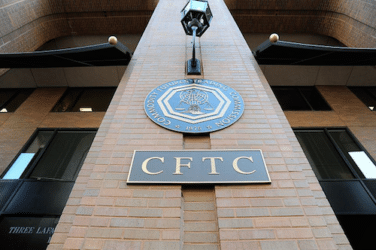
The European Securities and Markets Authority (ESMA), the EU’s financial markets regulator and supervisor, the European Commission and the European Central Bank announced the next steps to support the preparations towards a transition to T+1.
ESMA will also deliver its final report on shortening the cycle to the Council and the European Parliament in the next weeks, however with an aim to accelerate the transition, is sharing preliminary findings in this statement.
Joint Statement by ESMA, the European Commission’s DG FISMA (Directorate‑General for Financial Stability, Financial Services and Capital Markets Union), and ECB-DG MIP (Directorate-General for Market Infrastructure and Payments)
For most of the last decade, the global standard for settlement of securities was for it to occur on the second business day after the date on which those securities were traded (T+2). However, international capital markets have started to gradually shift to a shorter standard securities settlement cycle, namely T+1. This trend received a significant boost in May of this year with North America (US Canada and Mexico), moving to T+1 settlement, which prompted further jurisdictions to announce a similar move.
ESMA has been mandated1 to assess, in close cooperation with the members of the ESCB, the appropriateness of shortening the settlement cycle in the EU, to look at the impacts, the costs and benefits and international developments and to propose a detailed roadmap towards a shorter settlement.
ESMA will deliver its report to the Council and the European Parliament in the coming months, but its preliminary findings are clear. First, shortening the settlement cycle in the EU will change the way in which markets function, with impacts depending on the type of stakeholder, the category of transaction and the type of financial instrument. Second, quantifying some of the costs and benefits related to the shortening of the settlement cycle in the EU is challenging, but the elements assessed by ESMA to date suggest that the impacts of T+1 in terms of risk reduction, margin savings and the reduction of costs linked to the misalignment with other major jurisdictions globally, bring along important benefits for the EU Savings and Investments Union (‘SIU’). Third, harmonisation, standardisation and modernisation will be needed and will require investments. The improved efficiency and resilience of post-trade processes that would be prompted by a potential move to T+1 would facilitate achieving the objective of further promoting settlement efficiency in the EU.
Although settling securities transactions on T+1 in EU Central Securities Depositories (CSDs) is already technically and legally possible, EU market participants have indicated a strong preference for amending the CSDR (Regulation (EU) No 909/2014) to mandate a harmonised shortening of the settlement cycle in the EU. In their view, this would ensure a coordinated and smooth transition to T+1 and provide legal certainty. A decision on this matter needs to be taken by the EU co-legislators following a legislative proposal from the European Commission, should the latter decide to adopt one.
TARGET-2-Securities (T2S), the Eurosystem’s technical platform to which most of EU CSDs have outsourced settlement, plays a central role in the EU post-trade landscape. Furthermore, for several years the AMI-SeCo, the ECB advisory group on market infrastructures for securities and collateral, has been promoting a harmonisation agenda for post-trading activities in the EU. The ECB will pursue the work carried out under the T2S governance and under the AMI-SeCo.
In view of the above, the need for an efficient and competitive EU SIU, as well as of the challenges of a shift to T+1 in the complex EU post-trade landscape, it is urgent to act if the EU wants to avoid prolonging and amplifying the negative impacts of the misalignment with major jurisdictions internationally. Given the high level of interconnectedness between the EU capital markets and those in other jurisdictions in Europe, a coordinated approach across Europe is desirable, with efforts to reach consensus on the timing of any move to T+1. In this respect, the Commission services (DG FISMA), the ECB’s DG MIP and ESMA consider it necessary to accelerate every aspect of the technical work needed to pave the way to any future move to T+1 in the EU.
Experience in other jurisdictions has shown that close cooperation between regulators and the financial industry is of the utmost importance to facilitate the transition to T+1. ESMA, in close coordination with national competent authorities, DG FISMA and the ECB’s DG MIP have therefore agreed to establish a governance structure, incorporating the EU financial industry, as soon as possible to oversee and support the technical preparations of any future move to T+1.
In order not to lose momentum, details of the governance structure will follow shortly. It will be important that this governance is inclusive and ensures balanced sectorial and geographical representation.
Source: ESMA
European move to T+1 settlement crucial for asset managers
EFAMA members applaud the statement released by the European Commission, ESMA and the ECB on shortening the standard securities settlement cycle. EFAMA agrees that the setting up of a governance structure is an urgent and necessary step toward delivering a final roadmap for Europe’s transition.
Furthermore, EFAMA wholeheartedly agrees with the underlying rationale for this move. Misalignment with a key market like the US generates ongoing costs, ultimately borne by the end-investor. Over time, this will also harm the competitiveness of our products, vis-a-vis other alternatives, particularly among global investors.
The statement refers to the interconnectedness of EU markets with other jurisdictions in Europe, and the need to coordinate the timing of the move. It goes on to point out the need to accelerate the technical work to facilitate such a coordination. EFAMA members fully subscribe to this view, and believe that end-2027, as currently indicated for the UK, is a feasible date for a broader European transition, including the UK and Switzerland.
EFAMA and its members stand ready to support the work of the new group that will be shortly established.
Source: EFAMA






